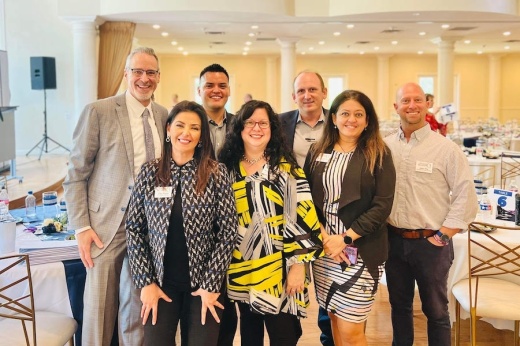The report states that when compared to the rest of the U.S., Texas ranks the worst in access to mental health care.
Local nonprofit Shield Bearer Counseling Centers has been working since 2005 to remove barriers to counseling. The organization has nine physical locations in addition to telehealth offerings; clients pay on a sliding scale system and are not turned away due to inability to pay; and licensed practitioners offer flexible hours and address a range of needs.
Executive Director Thad Cardine said prior to the COVID-19 pandemic, only two counselors on staff were trained in telehealth, but now all 40 counselors can provide in-person or telehealth services. Increasing access during this time proved necessary as the number of people seeking care multiplied.
“We saw an influx in marriage issues and domestic violence, in teens and children, a big influx in first responders, even a big influx in pastors and their families, that was a huge segment as well ... [and caregivers],” he said. “And then with the young adults and teens, suicide being a major component. We responded to more suicide situations in the past year than we did since 2005 when we started.”
According to the Centers for Disease Control and Prevention, suicide claimed 48,183 lives in the U.S. in 2021, which amounts to one death every 11 minutes.
“The past few years was a universal traumatic experience for everybody in one capacity or the other ... and one of the things that we're preparing for is that most traumas and most experiences like this, you don't really get the effect for five to 10 years,” he said. “So it’s only going to grow—that need.”

“I think many of us don't convey any type of judgment or pass along shame when we talk to other people who bring up [mental health], but I think there is a personal stigma that is still quite large,” Cardine said. “So I think people [say] ‘That's great for them; I'm so happy you're seeing somebody,’ but ... I think there's still a very strong personal stigma out in the community that probably is going to take a lot more time.”
Cardine said it's important for individuals to recognize their limits and prioritize self-care to maintain mental health—whether that means taking a break, turning off their phone, practicing mindfulness, getting a counselor or attending a workshop.
“I see mental health kind of like a spiral—the people who generally call our number have fallen to the bottom of that spiral. The symptoms they're dealing with is their spouse walked out on them, they're losing their house, they lost their job, there's been violence of some sort. Major things have happened,” he said. “But prior to them hitting the bottom, there was a spiral, and so call before then. Call and get a check-up and just talk it through with a counselor and have them help you.”
Educational opportunities
In addition to one-on-one counseling sessions, Shield Bearer offers support groups and educational workshops catered to specific audiences. Some examples include:
Free weekly groups
- “Good Grief” group meets Mondays from 1-2 p.m. to cover grief stages, anger, guilt, finances, new relationships and remembering loved ones.
- “Skills Crews” group meets Tuesdays from 6:30-7:30 p.m. with teens ages 13-17 learning positive skills to navigate life’s ups and downs.
- “Adoptee” group meets Thursdays from 6:30-7:30 p.m. for adoptees to discuss birth parents, adoptive parents, siblings and feelings of abandonment.
- “Confident and Successful Parenting” is presented on the second Saturday from 9-10:30 a.m. and helps parents have successful relationships with their children.
- “Creating a Solid Rock Marriage” is presented on the second Wednesday from 6:30-8 p.m. to help married couples improve their relationships.
- “Managing Life for Young Adults” is presented on the second Monday from 6:30-8 p.m. and covers topics such as independence, finances, career and decisions.





